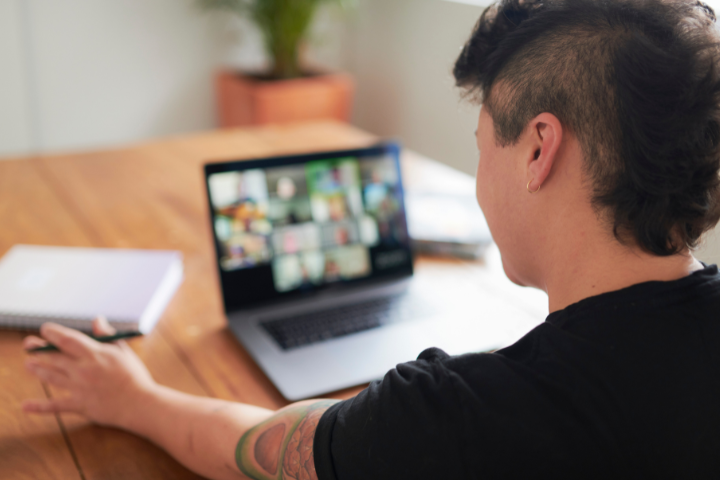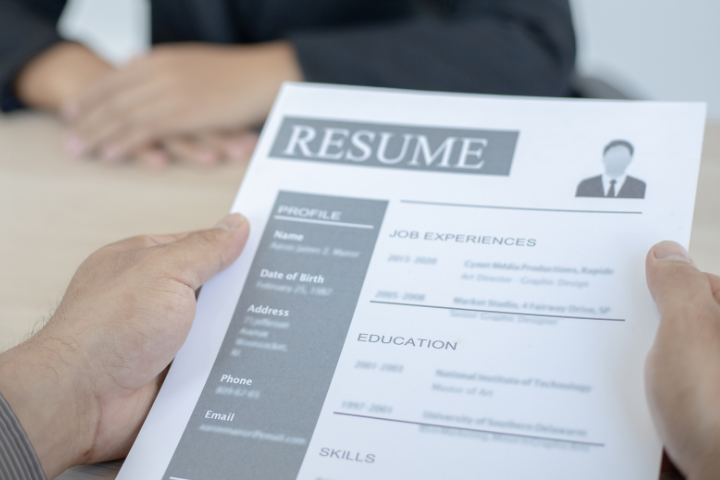Online job interviews are now widespread. They save time and allow people to connect from anywhere in the world. However, they also come with their own set of problems. A poor internet connection, bad lighting, or a noisy background can hurt your chances before you even start talking. That’s why preparing the right way is just as important as it is for an in-person interview.

The Cost of Ignoring Technical Checks
Many candidates fail to test their setup before the interview, which often leads to avoidable mistakes. Around 33% of online interviews fail because of technical problems such as weak internet, faulty microphones, or camera issues. Losing a job opportunity simply because of a bad connection is both frustrating and preventable. Before the call, could you test your internet, microphone, camera, and the interview platform? A smooth, trouble-free setup shows that you are ready and serious about the role.
The Power of a Professional Background
What’s behind you on camera says almost as much as what you say in the interview. A messy room or visible clutter can distract the interviewer and pull focus away from your words. Choosing a quiet, clean space with good lighting helps keep the attention where it belongs—on you. Sitting near a window for natural light or using a lamp to brighten your face creates a more professional and welcoming image.
Dressing for Success, Even at Home
It can be tempting to dress casually for an interview when you are sitting at home, but that is a mistake. People form first impressions in as little as seven seconds, and your clothing plays a significant role in that judgment. Wearing a neat shirt or blouse not only makes you look professional but can also change how you feel during the conversation. Feeling confident in your appearance helps you project confidence in your words.
Researching the Company Gives You an Edge
Many candidates are caught off guard by simple questions such as, “What do you know about us?” or “Why do you want to work here?” Not knowing the answer can signal a lack of interest. Visiting the company’s website, reviewing their goals, and understanding the job role shows that you have done your homework. This preparation makes your answers stronger and helps you connect your skills to the company’s needs.

Practicing Your Answers Pays Off
Relying on quick thinking alone can lead to awkward pauses and unclear responses. Practicing your answers out loud helps you stay focused and confident. One of the most common questions—“Tell me about yourself”—should be prepared in advance, keeping it clear, concise, and engaging. The more you rehearse, the easier it becomes to respond naturally during the real interview.
Using the STAR Method for Stronger Responses
When answering longer questions, the STAR method is a simple but effective approach. It stands for Situation, Task, Action, and Result, guiding you to explain what happened, what you needed to do, what you did, and the outcome. This method helps you avoid going off-topic and ensures that your answer shows real experience. Many hiring managers prefer this style because it is easy to follow and demonstrates problem-solving skills.
Making Eye Contact Through the Camera
Eye contact is a powerful way to build trust, even in a virtual setting. Many people make the mistake of looking at their face on the screen instead of the camera. When you look directly into the camera, it feels to the interviewer like you are looking at them. This small change makes your conversation feel more personal and engaging.
Using Notes Without Losing Focus
I think having a few notes within reach can be helpful, but you should avoid reading them word-for-word. A glance between questions can remind you of important points without breaking the natural flow of conversation. Reading from a script can make you sound stiff and less confident. Staying engaged with the interviewer is more important than sticking to exact wording.
Arriving Early Sets the Right Tone
Being ready at least 10 minutes before the interview allows you to make final checks and settle your nerves. Joining right on time leaves no room to fix last-minute problems. If you rush in and something goes wrong, it can throw off your confidence. Being early also shows that you are organized, prepared, and respectful of the interviewer’s time.

The Small Step That Makes You Stand Out
Only 24% of candidates send a follow-up message after an interview, according to research. This means a simple thank-you note can instantly set you apart. In your message, could you mention something specific from the conversation, such as a topic you enjoyed discussing? Taking the time to send a thoughtful follow-up leaves a positive final impression.
Treat Online Interviews Like In-Person Meetings
Online job interviews are not easier than in-person ones; they require different skills. Lighting, background, eye contact, and preparation all play a bigger role when you are on screen. When you prepare carefully, you show professionalism and attention to detail. The goal is to present your best self, even through a camera.
Turning a Virtual Call Into a Real Opportunity
As career expert Alison Doyle says, “Interviewing online is still interviewing. Preparation, professionalism, and presence all matter.” Treat the interview as a serious opportunity, because it could lead to a significant career step. With the proper setup, practice, and follow-through, you can turn a virtual meeting into a genuine job offer.




